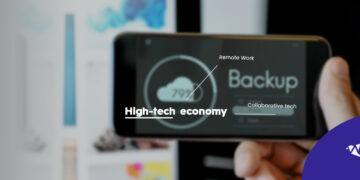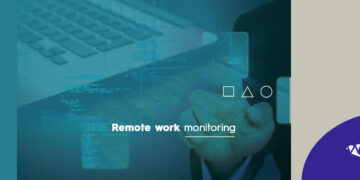It’s no secret that technology and culture have profoundly impacted how we live and work.
The rise of remote work and outsourcing partnerships has changed the landscape of America’s workforce. As more businesses move to a remote model, the need for employees that understand how technology makes their work meaningful will only continue to grow.
In this blog post, we’ll explore how technology drives organizational culture. We also explain five signs for recognizing how technology and remote work are changing your corporate culture.
Can Technology Drive Organizational Culture?
The COVID-19 pandemic has generated numerous transformations in the labor market in the U.S. For instance, remote work prevailed among entire populations and small businesses with positive impacts. On the one hand, remote work allows people to add balance to their personal and professional lives, enhancing their well-being and mental health.
On the other hand, business owners and executives could reduce costs associated with people operations and staffing. The role of staffing agencies and outsourcing companies has been essential since they advise business owners on how to transition to remote work by utilizing technology.
Thanks to them, American businesses could introduce technologies to foster inclusion, diversity, parity, and collaboration in the workplace, boosting creativity, productivity, and efficiency. This illustrates how technology has triggered an organizational change in the U.S.
Can companies enhance their cultures with technology? Certainly, yes. According to Brent Gleeson, technology is transforming culture and employee engagement in three ways, including
- Access to actionable data entails delivering information to employees in real-time, in the task, to improve performance. This allows companies to build a culture of continuous improvement and meaningful work.
- Providing employees with meaningful information leads to increased transparency and accountability. Since technology gives a transparent view of operations, workers can identify flows, suggest improvements, and be aware of operational trends. Therefore, employees are more engaged with their positions, and relationships between coworkers grow stronger.
- By considering technology seriously, companies’ and employees’ values will match. In addition, vibrant cooperative cultures will emerge through technologies that promote collaboration. “Pride is earned when workers are given access to information, challenged with responsibility to make decisions, and held accountable to their fellow employees,” explains Gleeson.
How Can You Tell if Technology and Remote Work are Changing Your Company’s Culture?
Here are five signals that indicate that your company’s culture is being transformed by technology and remote work.
Sign #1. Adaptability is a primary value in your company’s culture.
In remote work environments, adaptability can be achieved by introducing technologies to increase agility in the workforce.
As a result, team members are proactive and able to communicate effectively in order to adjust to changes. Rather than waiting for someone to assign a task or give instructions, team members should feel comfortable taking the initiative and reaching out to others for help.
Sign #2. Your remote teams learn to create stronger relationships in the workplace.
Technology has been used for project management in companies based on remote work. For example, remote work monitoring software and communication platforms have engaged business owners and employees in managing labor relations efficiently.
Working together to achieve a common goal has brought employees closer and promoted cooperation, resulting in improved imagination, innovation, and efficiency.
Sign #3. Your remote workers are more cooperative.
Since technology has been introduced in remote work environments to take efficiency and productivity to the next level, cooperation has become a solid organizational value that you may want to foster in your own company.
Sign #4. Your human talent is diverse and inclusive.
In today’s business world, having a diverse, inclusive talent pool is more important than ever. With the advent of the Internet, companies may now employ individuals from all over the world with various beliefs, cultural norms, and attitudes toward employment. This allows businesses to tap into a global pool of talent, which can be a significant advantage.
In this video, you can learn more about the significance of diversity in the workplace.
Your remote employees are prepared for the future of work
Technology has always been a great leveler, providing employees with access to the latest tools and information regardless of their location or seniority. In the past, this meant employees had to be comfortable using a wide range of software applications and hardware devices.
However, the future of work is likely to be even more reliant on technology, with employees expected to use artificial intelligence (AI) and virtual reality (VR) in their everyday work.
As a result, it’s critical that workers feel at ease with these cutting-edge technologies. One way to ensure this is to provide training and support for employees as they get used to using AI and VR. This will help them feel confident using these technologies and prepare them for the future of work.
Technology has become the driving force behind organizational culture, and remote work has only accelerated this trend in the American workforce.
If you’re worried that your company’s culture may be changing in ways that you don’t like, there are steps you can take to investigate further and make changes if necessary. But first, it’s important to understand how technology shapes our cultural landscape.
Are you ready to start thinking about technology and culture in a new way?














